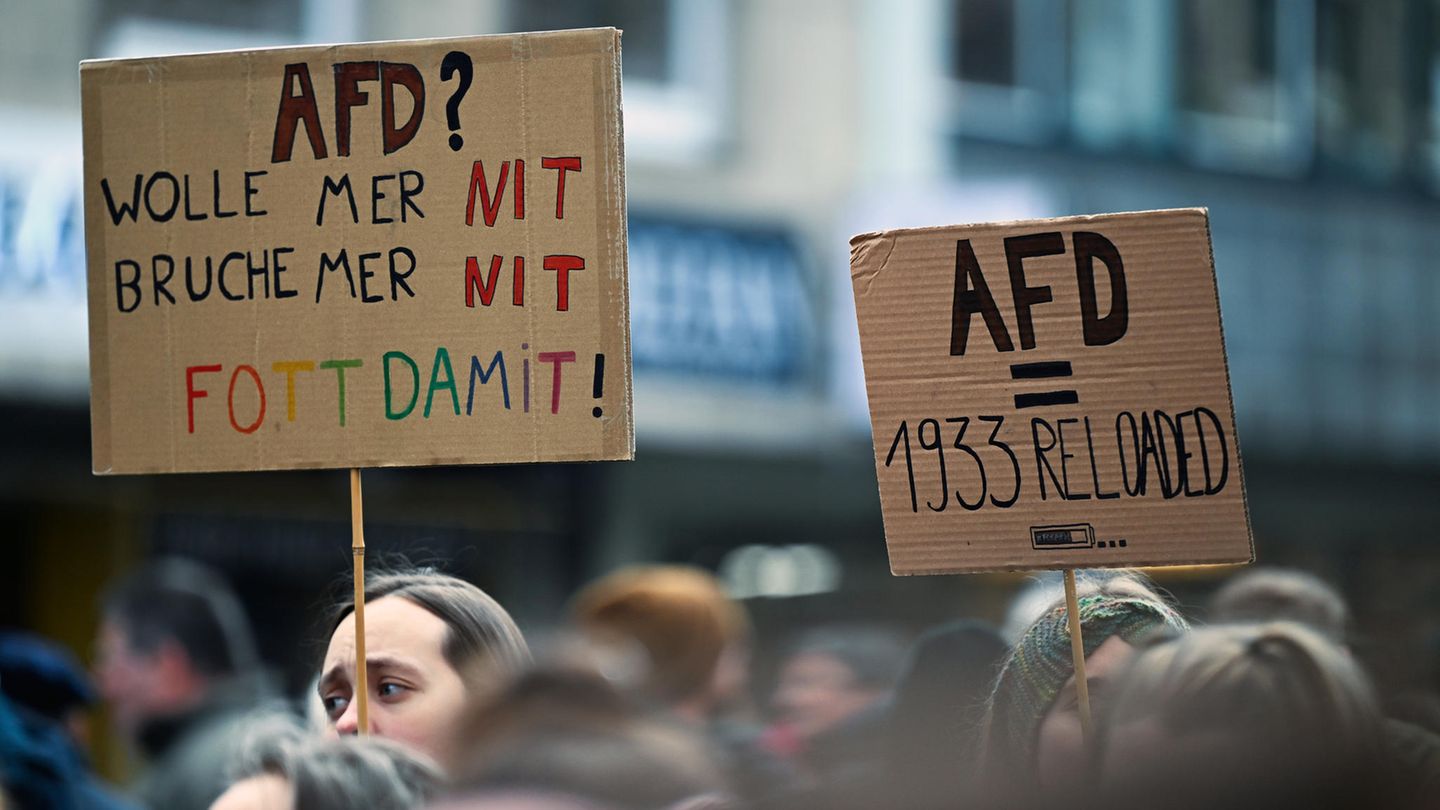Demonstrations against the right are flaring up all over the country – and the AfD is in the spotlight as a right-wing party. The protests are also reflected in surveys: According to ZDF “Politbarometer”, the party is continuously losing percentages.
According to a survey, the AfD is losing popularity among eligible voters in Germany. In the ZDF “Politbarometer” published on Friday, the party lost three percentage points compared to the previous month – but was still the second strongest force at 19 percent. 72 percent of those surveyed said that they believed the AfD posed a threat to our democracy. However, only 41 percent supported a ban on the AfD.
According to the survey, the issue of right-wing extremism has increased significantly in importance and is now in second place among the most important problems in Germany, just behind the issue of migration. The demonstrations against right-wing extremism that have been taking place for several weeks were approved by 79 percent of those surveyed.
Protests could cause lasting damage to the AfD
38 percent believe that these protests, which are also directed against the AfD, are weakening the party. 39 percent do not expect any major impact and 18 percent assume that the AfD will be strengthened as a result. In the ARD’s “Germany trend” published the day before, the AfD had also lost three percentage points and ended up at 19 percent.
The poll numbers in the Sunday question for the other parties look as follows: The SPD could improve by two points to 15 percent, the CDU/CSU would remain the strongest force with an unchanged 31 percent. The Greens would only achieve 13 percent (minus one), which is their worst figure in almost six years.
The FDP would remain at four percent, the Left would lose another point and reach three percent. In contrast, the Sahra Wagenknecht alliance could clearly gain six percent (plus two).
There is still great dissatisfaction with the federal government. Two thirds say she does a bad job, while only 28 percent think she does a good job. But expectations of a Union-led government are also low. Only 31 percent believe that the CDU/CSU would do better if they were in government. For 50 percent there wouldn’t be a big difference, and 15 percent would expect worse work.
Boris Pistorius most popular politician
According to those surveyed, NRW Prime Minister Hendrik Wüst (CDU) is now one of the ten most important politicians. When assessing politicians based on likeability and performance, Federal Defense Minister Boris Pistorius (SPD) continues to be the undisputed number one. It is rated on the scale of plus five to minus five with an average score of 1.6.
Hendrik Wüst comes in second with 0.7. This is followed by CSU leader Markus Söder with 0.1, CDU leader Friedrich Merz with minus 0.4, Federal Foreign Minister Annalena Baerbock (Greens) with minus 0.6, Federal Economics Minister Robert Habeck (Greens) with minus 0.6, and the party founder Sahra Wagenknecht (BSW) with minus 0.7 and FDP leader Christian Lindner with minus 0.8. Chancellor Olaf Scholz (SPD) is in second to last place with minus 1.1. AfD leader Alice Weidel remains at the bottom by a clear margin with minus 2.5.
For the survey, the Mannheim Elections Research Group interviewed 1,217 randomly selected eligible voters between January 30th and February 1st. The error range is plus/minus three percentage points for a share value of 40 percent and plus/minus two percentage points for a share value of ten percent.
Source: Stern




